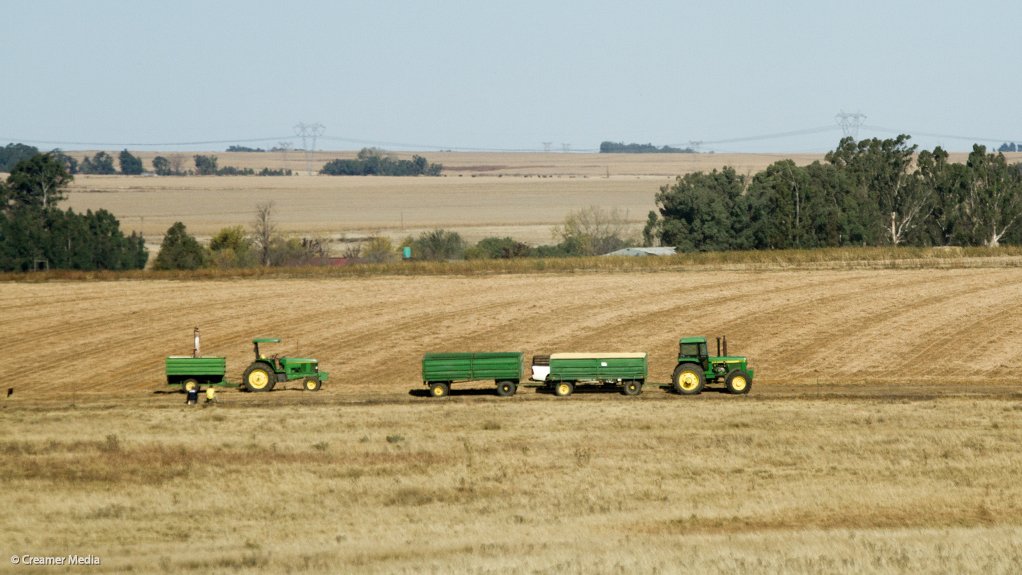Land reform, including the uncompensated expropriation of land, is necessary for economic growth and development and will contribute towards ending unacceptable levels of inequality, poverty and unemployment, African National Congress (ANC) National Executive Committee (NEC) member Dr David Masondo said on Tuesday.
Unpacking the ANC resolution on land expropriation without compensation at a seminar, in Pretoria, he said land expropriation should not be seen as a destructive measure, but rather as a developmental measure.
The National Assembly last week voted for the establishment of a Constitutional Review Committee to review Section 25 of the Constitution, which deals with land and expropriation.
Masondo said Parliament has taken the stance of looking at the Constitution to allow for expropriation without compensation without the risk of being constitutionally challenged later, adding that government should also look at the conditions under which expropriation without compensation should happen.
“The expropriation of land without compensation is one of many key mechanisms for land redistribution, with the aim of increasing agricultural production and food security . . . and to support other economic sectors,” he said.
Masondo pointed out that the resolution specifically targeted underused and unused land, noting that the resolution did not stipulate that all land would be expropriated without compensation.
“If you own land and you are not using it . . . you better start using it or you might lose it,” he said, adding that unused land did not assist the country in developing the economy.
Masondo highlighted that the Land Audit Report, which deals with the scope of privately owned land, points out that white South Africans own 72% of privately owned land, coloured South Africans 15%, South African Indians 5% and Africans 4%.
He added that current land reform programmes continued; however, the inequality of land ownership patterns urgently needed attention.
He argued that the notion that land expropriation would inherently lead to economic disaster was not based on empirical evidence, stating that people tended to focus on negative examples of land expropriation without compensation, such as Zimbabwe, instead of examples such as Brazil, “which used land expropriation without compensation to address inequality.”
Masondo noted that, according to the Department of Rural Development and Land Reform (DRDLR), 30% of land should have been redistributed by 2014, but, to date, only 8% has been redistributed.
Also speaking at the summit, Agricultural Business Chamber (Agbiz) CEO Dr John Purchase said Agbiz disagreed with the ANC’s policy on land expropriation without compensation.
“We believe the extension of property rights is the best way to address the issue around land reform. We disagree with expropriation without compensation,” he said.
He did note that land reform was necessary for the development of South Africa, adding that “economic development also lies at the heart of land reform. It’s a property rights issue and we need to understand the role that property rights plays,” he argued.
Masondo, meanwhile, stressed that giving title deeds to black people in rural areas was “definitely under consideration.”
Land Bank CEO TP Nchocho, meanwhile, said that achieving sustainable and equitable outcomes regarding land redistribution was a challenge.
“It’s easy to get excited about land expropriation and lose focus on what needs to be solved [for expropriation without compensation to be successful],” he said.
He added that the Land Bank Act placed specific requirements on the Land Bank to contribute to the deracialisation of land and facilitating greater access to land by those who, as a consequence of South Africa’s history, have not had access to land in the past.
“The DRDLR should release all unused State-owned land for redistribution,” he suggested.
During a separate media briefing on Tuesday, AfriBusiness CEO Piet le Roux reiterated that AfriBusiness would not accept land expropriation without compensation.
Addressing media in Pretoria on the ANC’s highly contested land expropriation policy, he said the adoption of the resolution posed a threat to the Constitutional accord that South Africa reached between 1990 and 1994.
“The resolution promotes economic backwardness, social problems and a tumultuous political environment, and the concern is widespread,” he said.
He added that the new political landscape the ANC has implemented should be opposed.
“We are seeing that radical fringe policies that were, a few years ago, considered to be borderline insane has moved into the mainstream. It is remarkable that only a few weeks ago President Cyril Rhamphosa said that South Africa was open for business at Davos . . . what we see now is South Africa being closed for business,” he said.
Also speaking at the briefing FW de Klerk Foundation chairperson David Stewart said the adoption of the resolution was not only a threat to farmers, but also to all property owners across the country.
“Once one has diluted property rights, there is no assurance that people’s homes, shareholdings or companies [will be safe],” he said.
He added that the victims of this resolution would not just be farmers, but that millions of South Africans would suffer, owing to the serious knock it would have on the economy.
“People will not invest in a country that does not protect its property and investments,” he said.
EMAIL THIS ARTICLE SAVE THIS ARTICLE ARTICLE ENQUIRY
To subscribe email subscriptions@creamermedia.co.za or click here
To advertise email advertising@creamermedia.co.za or click here











